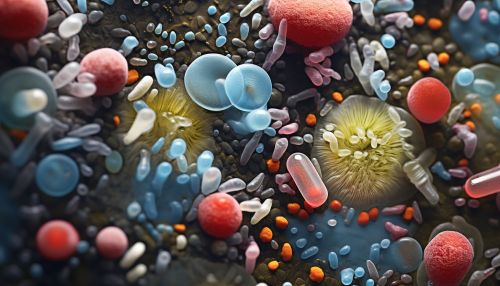The Role of Microbiomes in Human Health and Disease
Introduction
The human body is a complex ecosystem, hosting trillions of microorganisms that coexist in harmony with their host. This vast community of bacteria, viruses, fungi, and other microorganisms, collectively known as the microbiota, is primarily found in the gut, but also inhabits other sites such as the skin, mouth, and respiratory tract. The collective genomes of these microorganisms constitute the microbiome. The human microbiome plays a crucial role in maintaining health and its alteration or imbalance has been associated with various diseases.
Human Microbiome
The human microbiome is a dynamic and complex community of microorganisms that reside in and on our bodies. It is estimated that the human body contains approximately 100 trillion microbial cells, outnumbering human cells by a factor of 10. These microbes belong to various species, each with its own set of genetic material, contributing to the vast genetic diversity of the microbiome. The microbiome is not static, but changes throughout a person's life, influenced by factors such as diet, environment, and medication use.
Role in Health
The microbiome plays a crucial role in human health. It aids in digestion, synthesizes essential vitamins and nutrients, trains the immune system, and protects against pathogenic microorganisms.
Digestion
The gut microbiota aids in the digestion of complex carbohydrates, proteins, and fats, breaking them down into simpler compounds that can be absorbed by the body. Certain species of bacteria in the gut are capable of fermenting dietary fiber, producing short-chain fatty acids (SCFAs) such as butyrate, propionate, and acetate. These SCFAs provide energy to the cells lining the colon and have anti-inflammatory properties.
Immune System
The microbiome plays a critical role in the development and function of the immune system. It helps in the maturation of immune cells and the production of antibodies. The interaction between the microbiota and the immune system helps maintain a balance, preventing overreaction to harmless substances while ensuring a robust response to pathogens.
Protection Against Pathogens
The microbiota provides a protective barrier against pathogenic microorganisms. It competes with pathogens for nutrients and attachment sites, produces antimicrobial substances, and stimulates the immune system to respond to invaders.


Role in Disease
Alterations in the composition and function of the microbiome, a condition known as dysbiosis, have been associated with various diseases, including gastrointestinal disorders, metabolic diseases, and neurological disorders.
Gastrointestinal Disorders
Dysbiosis has been linked to several gastrointestinal disorders such as inflammatory bowel disease (IBD), irritable bowel syndrome (IBS), and colorectal cancer. In these conditions, there is an imbalance in the gut microbiota, with an increase in harmful bacteria and a decrease in beneficial bacteria.
Metabolic Diseases
The gut microbiota has been implicated in metabolic diseases such as obesity and type 2 diabetes. Changes in the gut microbiota can affect energy harvest from food and influence metabolic processes, leading to increased fat storage and insulin resistance.
Neurological Disorders
Emerging research suggests a connection between the gut microbiota and the brain, known as the gut-brain axis. Dysbiosis has been associated with neurological disorders such as autism, depression, and Parkinson's disease. However, the mechanisms underlying these associations are still being explored.
Conclusion
The human microbiome plays a pivotal role in maintaining health and its imbalance is associated with various diseases. Understanding the complex interactions between the microbiome, the host, and environmental factors can provide insights into disease mechanisms and lead to novel therapeutic strategies.
